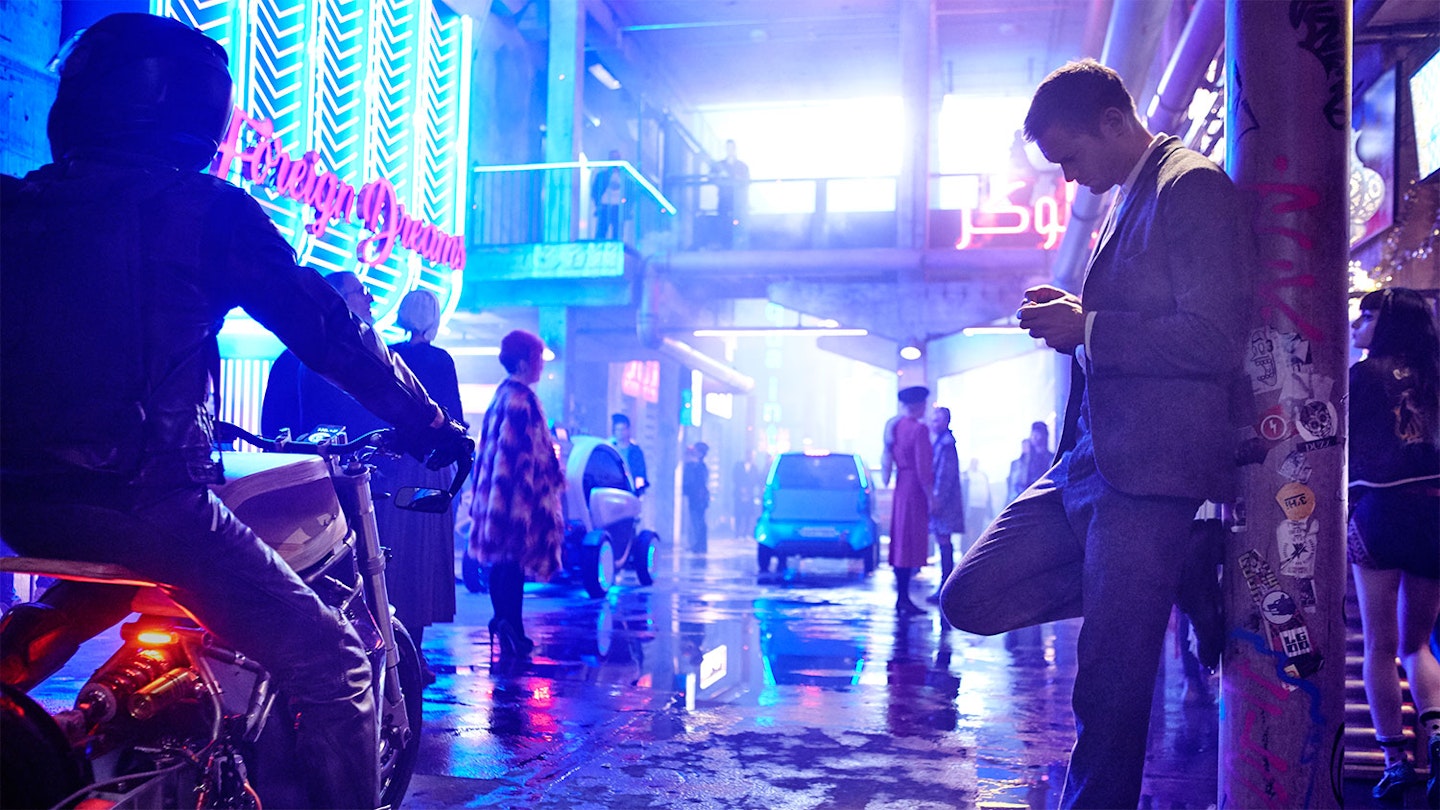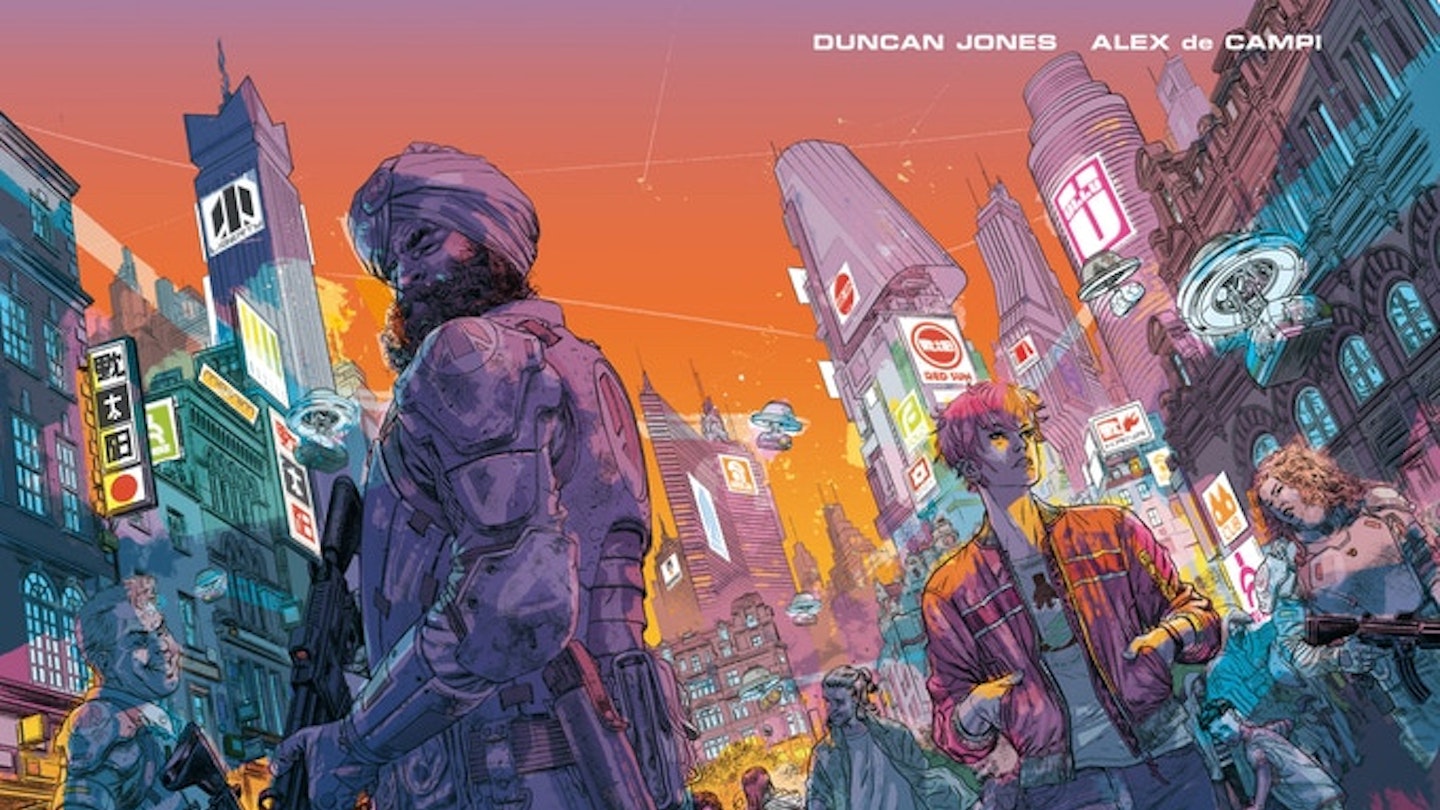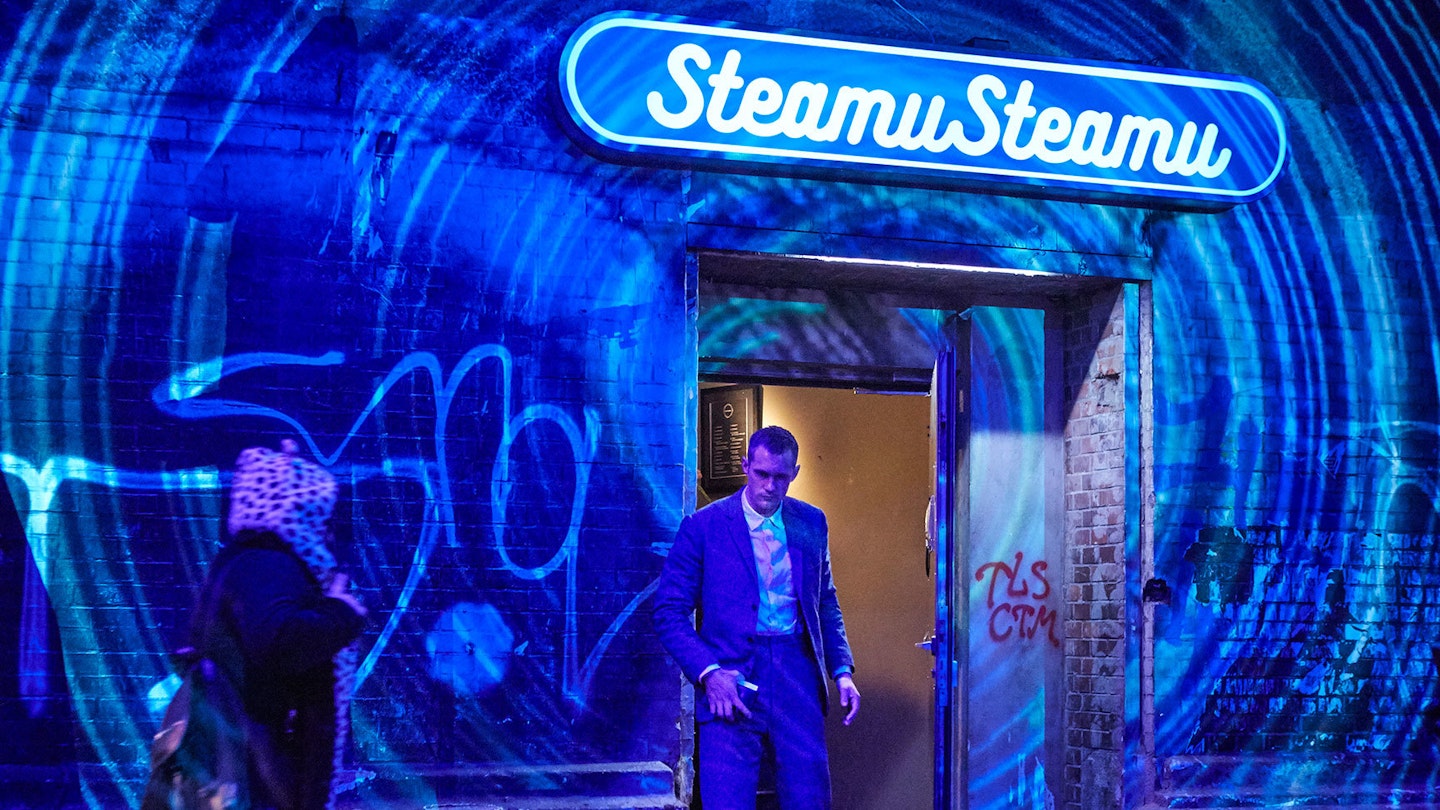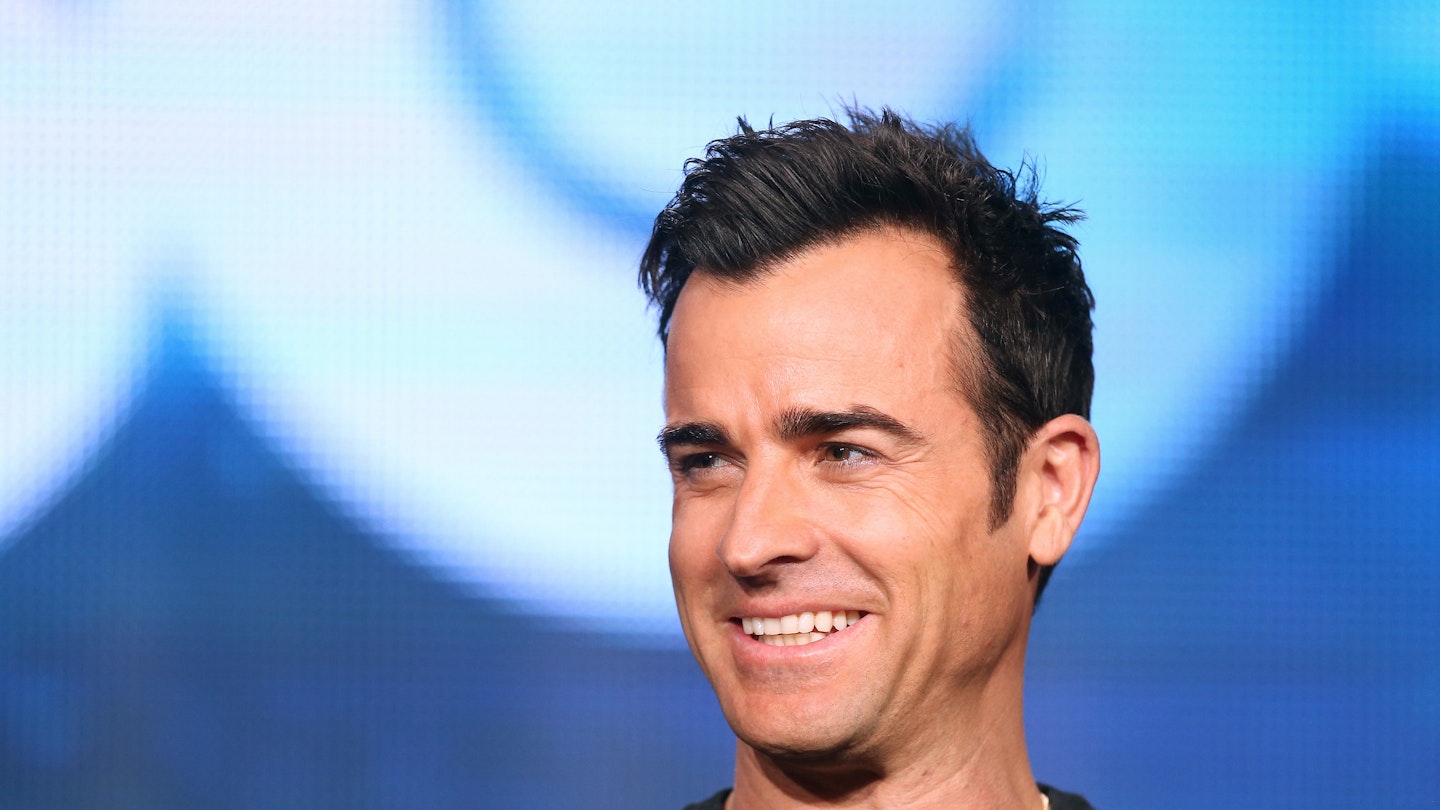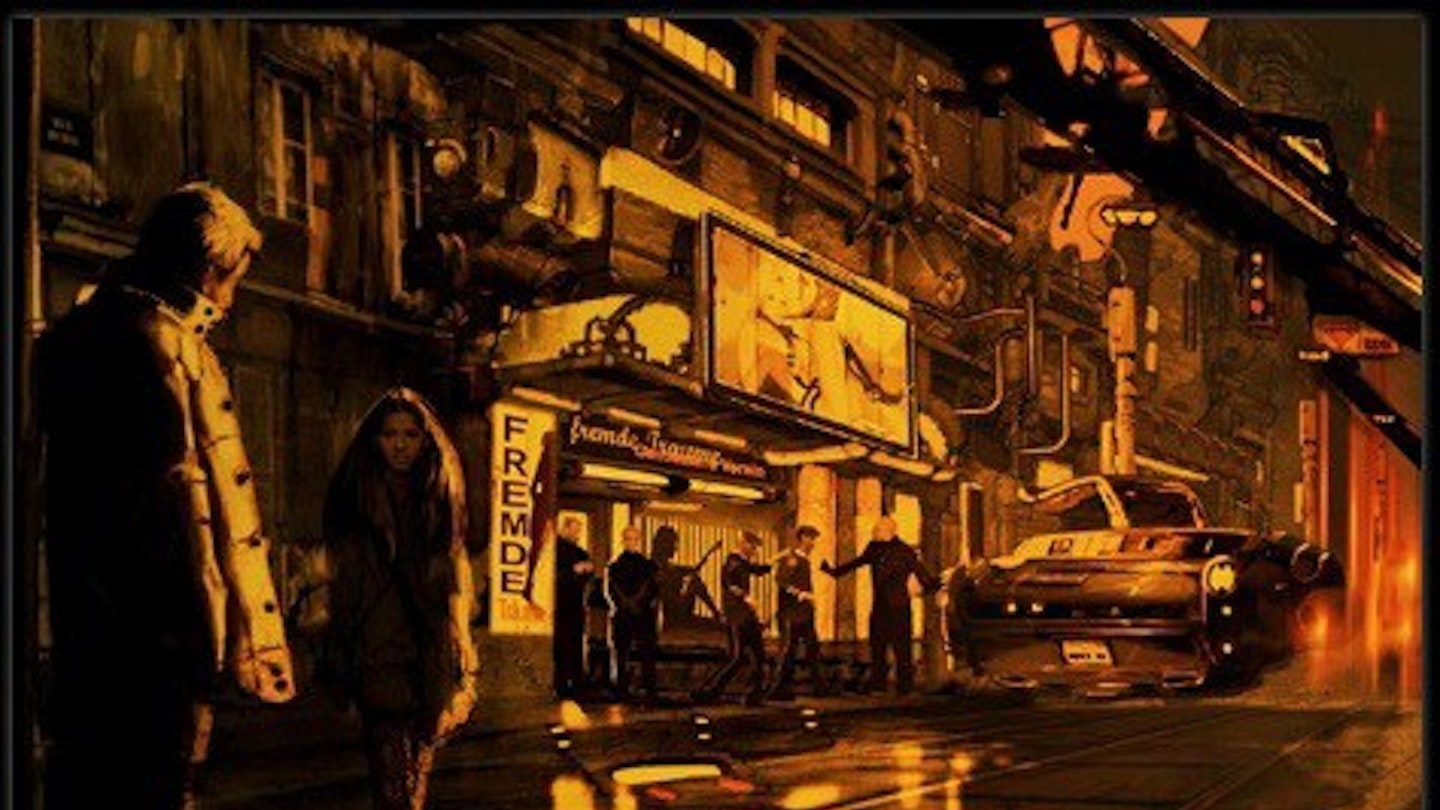It’s fair to say Duncan Jones’ Mute arrives on Netflix burdened by a considerable weight of expectation. It’s a film he’s been nurturing for over a decade-and-a-half. One which should prove that Warcraft was a studio-over-coddled glitch and which, encouragingly, is the narrative successor to his fantastic 2009 debut Moon; not a sequel so much as a fresh story in the same universe.
In the latter sense, at least, it delivers enthusiastically, via TV news stories following the Moon epilogue hearings and posters calling to “Free The 156” (i.e. the number of Sam Bell clones). However, these Easter eggs sadly turn out to be better than the story which barely hides them.
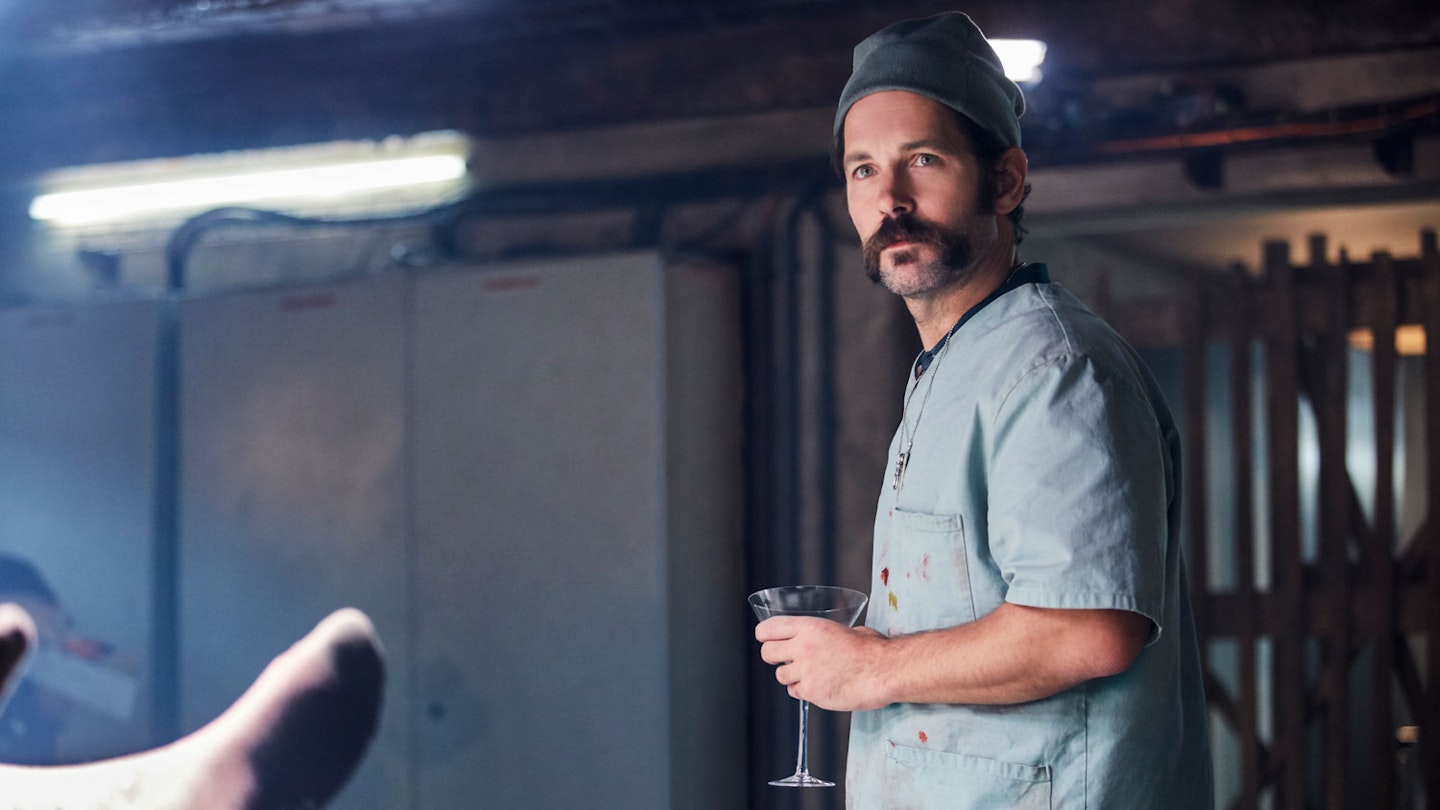
Spread thin over two-and-a-bit hours, the central mystery preoccupying towering, silent protagonist Leo (Skarsgård) fails to stimulate beyond a scattering of smart little touches. It’s interesting, for example, that Leo’s missing girlfriend-hunting line of inquiry has its questions better answered by privacy-destroying tech (such as a smart fridge) than by human beings; though still a challenge for someone raised as Amish and who obviously can’t use voice-activated gadgets. But Leo himself is a bland blank who swings childishly between anguish and anger — nothing close to as involving as Sally Hawkins’ similarly voiceless character in The Shape Of Water — and his investigation is weirdly side-lined, then outright gazumped, by a tonally tin-eared B-plot featuring Paul Rudd and Justin Theroux as sleazy underworld surgeons.
The result is a crushing disappointment.
Rudd’s Cactus is an unlikeable, obnoxious bully who uses his protectiveness over his daughter to justify atrocity. Theroux, meanwhile, is a character who’d be superfluous if he hadn’t been given a clunky reason to help join the plot’s dots, and one whose presence is rendered downright offensive thanks to a revelation about his sexual predilections. It’s a mystifying, unnecessary development that dumps the entire film in exactly the wrong kind of discomfort zone.
There is some relief in the dark-future-conjuring visuals, although, with a mid-budget, augmented Euro-metropolis look and all those cyberpunk’d Twizies zipping around the streets, they place Jones’ 2052 Berlin closer to The Zero Theorem than Blade Runner or Ghost In The Shell. Jones’ composer of choice Clint Mansell helps, with a warm, electro-washed score that owes much (unsurprisingly) to Vangelis. But these elements are more about the reassurance of the familiar than breaking new ground, and unfortunately aren’t enough to rescue the film from its own story.
Perhaps we did expect too much of Mute given its lengthy pre-history. Perhaps we hoped for more than we should have given Jones’ personal investment in finally realising it. But there’s no escaping the fact that, however you look at it, the result is a crushing disappointment.
